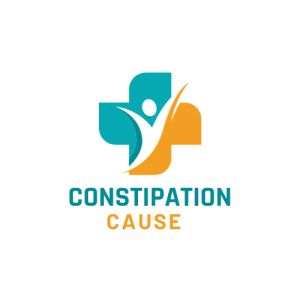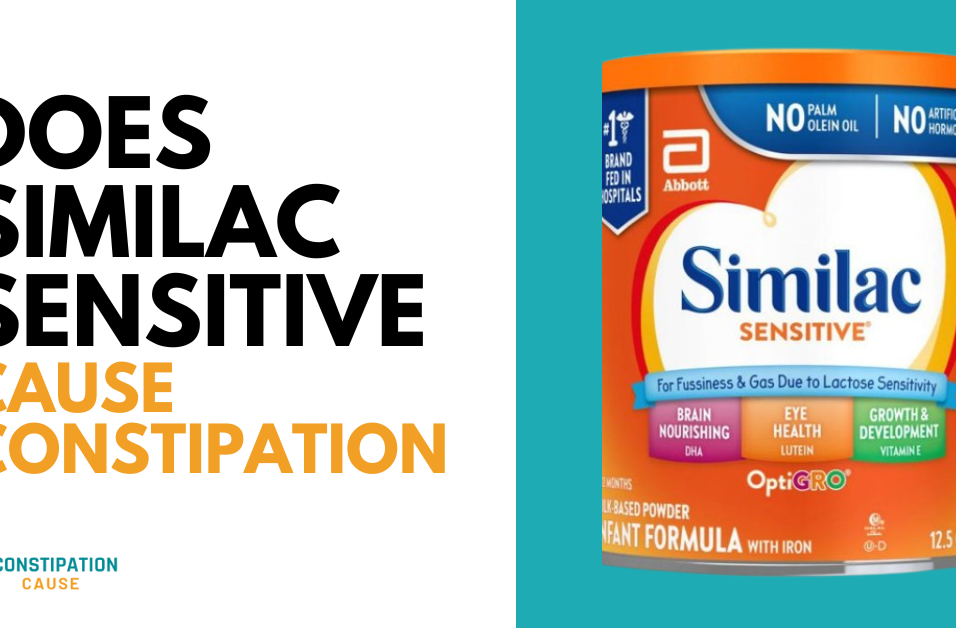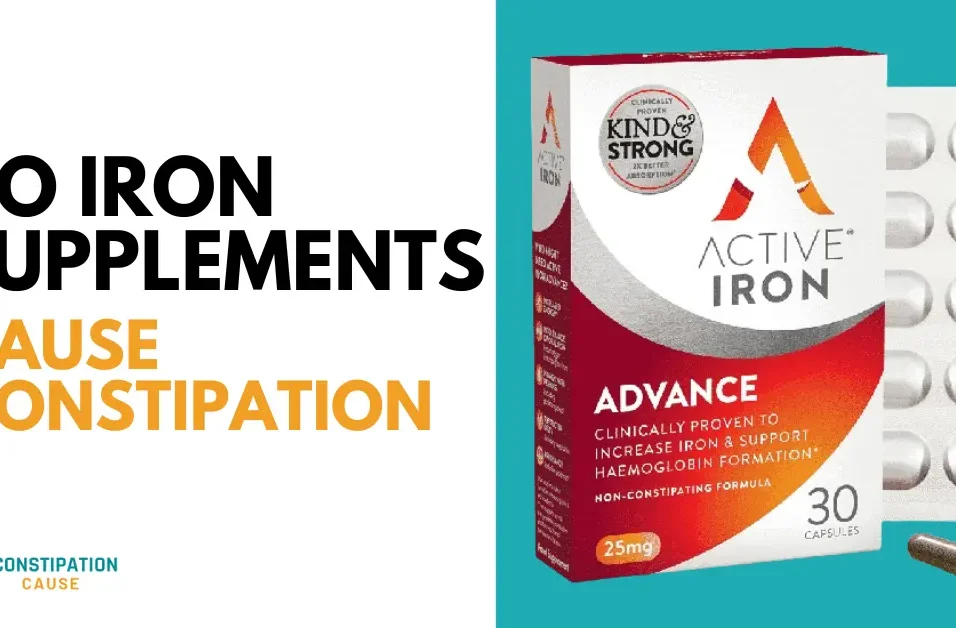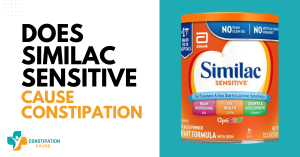In the world of sports nutrition and fitness, few supplements have garnered as much attention and acclaim as creatine. Renowned for its ability to boost strength, enhance muscle growth, and improve athletic performance, creatine has become a staple in the regimen of many athletes and fitness enthusiasts. But, amidst the accolades and success stories, a question often lingers in the minds of those considering its use: Does creatine cause constipation?
Constipation, an uncomfortable and sometimes even debilitating condition, is a concern that anyone would take seriously. No one wants to sacrifice their digestive comfort for the sake of improved physical performance. As the popularity of creatine continues to rise, so too does the need for a comprehensive understanding of its potential side effects, including its impact on gastrointestinal health.
In this article, we will uncover the truth about alleged connection of creatine supplementation and constipation. So, let’s get started.
Creatine and its role in the body:
Creatine, a naturally occurring compound found primarily in red meat and seafood, plays a crucial role in the body’s energy metabolism. It’s synthesized from amino acids in the liver, kidneys, and pancreas and is stored predominantly in our muscles.
Creatine’s primary role is to facilitate the rapid production of adenosine triphosphate (ATP), which is the body’s primary source of energy during short bursts of intense activity, such as weightlifting or sprinting.
Common uses of creatine in sports and fitness:
Creatine supplementation has become immensely popular in the sports and fitness world for its proven performance-enhancing effects. Athletes and fitness enthusiasts often turn to creatine for several reasons:
- Increased Muscle Strength: Creatine has been shown to boost muscle strength, making it a valuable tool for power lifters, bodybuilders, and athletes in strength-dependent sports.
- Enhanced Muscle Growth: Creatine may lead to greater muscle hypertrophy, promoting gains in muscle size when combined with resistance training.
- Improved Exercise Performance: Creatine can improve high-intensity, short-duration activities, allowing individuals to train harder and longer during workouts.
- Enhanced Recovery: Some studies suggest that creatine may aid in reducing muscle damage and inflammation, potentially speeding up recovery.
- Brain Health: Emerging research indicates that creatine might have cognitive benefits, potentially improving memory and cognitive function.
Now let’s hop onto the answer for your question: Does creatine cause constipation?
Can Creatine Intake Result in Constipation?
The question of whether creatine causes constipation has piqued the curiosity of many individuals considering its use as a dietary supplement. To address this issue comprehensively, it’s essential to understand that creatine itself is not inherently constipating. Instead, any association between creatine and constipation is more nuanced and indirect.
Scientific findings and studies related to this potential side effect.
- Limited Direct Evidence: Surprisingly, there is limited scientific evidence directly linking creatine supplementation to constipation. Most studies examining the effects of creatine have primarily focused on its impact on exercise performance, muscle growth, and other athletic parameters. Constipation has rarely been a primary focus.
- Anecdotal Reports: While scientific research may not provide a definitive answer, anecdotal reports from some creatine users suggest that there are side effects of creatine on digestion such as gastrointestinal discomfort, including constipation, during or after creatine supplementation. These reports vary widely, with some individuals experiencing no issues at all.
- Hydration Factor: One hypothesis regarding the potential link between creatine and constipation revolves around hydration. Creatine supplementation can cause an initial increase in water retention within muscle cells, potentially leading to a perception of dehydration in the gastrointestinal tract. This dehydration could contribute to constipation. However, this is not a universal experience, as many creatine users do not report constipation.
- Quality of Creatine Supplements: The quality and purity of the creatine supplement can also play a role. Some low-quality products may contain impurities or additives that could potentially irritate the digestive system and contribute to discomfort, including constipation.
Factors that might contribute to constipation in some cases:
- Hydration: Adequate hydration is crucial when using creatine. To minimize the risk of constipation, individuals should ensure they are drinking enough water, especially during the initial loading phase of creatine supplementation when water retention may be higher.
- Dosage and Loading: Some users may experience gastrointestinal issues from taking creatine, if they follow a high-dose loading protocol. Starting with a lower maintenance dose and gradually increasing it may reduce the chances of digestive issues.
- Quality Matters: Opt for high-quality creatine supplements from reputable brands. These products are less likely to contain impurities that could lead to digestive discomfort.
- Individual Variability: It’s essential to recognize that individual responses to creatine vary. While some individuals may experience constipation or other digestive discomfort, many others do not report such issues at all.
- Preexisting Conditions: People with preexisting gastrointestinal conditions or sensitivities may be more susceptible to digestive discomfort when taking any dietary supplement, including creatine. Consulting a healthcare professional before starting any new supplement regimen is advisable in such cases.
Impact of creatine on bowel regularity:
- Creatine generally doesn’t impact bowel regularity for most users.
- Some individuals may experience mild digestive changes when supplementing with creatine.
- Adequate hydration can help counteract any potential impact on bowel regularity.
- Individual responses to creatine may vary, so it’s essential to monitor your body’s reaction.
- Consult a healthcare professional if you have concerns about creatine and your digestive health.
Negative Aspects of Creatine:
Certainly, while creatine is generally considered safe and beneficial for many, there are some potential negative aspects or considerations associated with its use. Here are the negative aspects of creatine:
- Gastrointestinal Distress: Some individuals may experience digestive discomfort, including bloating, diarrhea, or constipation, when taking creatine supplements, especially during the loading phase.
- Dehydration Risk: Creatine can cause an initial increase in water retention in muscle cells. This may lead to perceived dehydration in other parts of the body, potentially exacerbating issues like constipation.
- Weight Gain: The water retention effect of creatine can also lead to a temporary increase in body weight. While this is often attributed to water and not fat gain, it can be a concern for those monitoring their weight.
- Kidney Strain Concerns: Although studies have not shown that creatine causes kidney damage in healthy individuals, there have been concerns about potential kidney strain, especially if used in very high doses or by individuals with preexisting kidney conditions.
- Unknown Long-Term Effects: While short-term studies suggest creatine’s safety, there is limited information on the long-term effects of continuous, high-dose creatine supplementation over many years.
- Not Suitable for Everyone: Creatine may not be suitable for individuals with certain medical conditions, such as kidney disease or a history of kidney stones, and should be used with caution or avoided altogether.
- Potential for Misuse: Some individuals may misuse creatine by taking excessive doses, which can lead to negative health effects. It’s important to follow recommended dosages and consult with a healthcare professional if you have concerns.
- Interactions with Medications: Creatine supplements may interact with certain medications. If you are taking prescription medications, it’s essential to consult with a healthcare provider before using creatine.
- Expense: High-quality creatine supplements can be relatively expensive, especially when compared to dietary sources like meat and fish.
- Psychological Dependence: Some individuals may become psychologically dependent on creatine, believing they cannot perform well in their fitness routines without it.
Benefits of Creatine:
Creatine is one of the most widely studied and popular dietary supplements in the world of sports nutrition and fitness. Its effectiveness and safety have been extensively researched, and it offers several notable benefits for individuals engaged in physical activities and exercise. Here are the key benefits of creatine:
- Enhanced Exercise Performance: Creatine is renowned for its ability to improve high-intensity, short-duration activities. It provides a quick and easily accessible source of energy for activities such as weightlifting, sprinting, and jumping. This can lead to improved power, strength, and overall exercise performance.
- Increased Muscle Mass: Creatine supplementation has been shown to promote muscle growth or hypertrophy when combined with resistance training. This is partly attributed to increased water content within muscle cells and potentially increased protein synthesis.
- Faster Muscle Recovery: Some research suggests that creatine may help reduce muscle damage and inflammation after intense exercise. This can lead to quicker recovery times between workouts.
- Improved Endurance: While creatine is typically associated with short bursts of power, there’s evidence that it may benefit endurance athletes as well. It could enhance endurance by optimizing energy utilization during prolonged activities.
- Enhanced Cognitive Function: Emerging research suggests that creatine may have cognitive benefits, such as improved memory and cognitive function. This has implications not only for athletes but also for individuals seeking cognitive enhancement.
- Bone Health: There is some evidence to suggest that creatine may support bone health by increasing bone mineral density, although further research is needed to confirm this potential benefit.
- Neuromuscular Health: Creatine has been investigated for its potential role in various neuromuscular conditions and disorders, such as muscular dystrophy and Parkinson’s disease. While research is ongoing, there is promise in its therapeutic applications.
- Safe and Well-Tolerated: Creatine is generally considered safe when used as directed. It has undergone extensive testing, and adverse effects are typically mild, such as gastrointestinal discomfort or bloating in some individuals.
- Widely Accessible: Creatine is widely available over-the-counter as a supplement and is relatively affordable, making it accessible to a broad range of individuals.
- Versatility: Creatine can be used by a wide range of individuals, from competitive athletes to recreational exercisers and those looking to improve their overall fitness. It is not limited to a specific age group or fitness level.
Balancing Creatine Intake: Diet and Hydration Tips
As we’ve explored the numerous benefits of creatine supplementation, it’s important to remember that achieving the best results often requires a holistic approach. While creatine itself offers a myriad of advantages for exercise performance and muscle growth, optimizing your diet and hydration can amplify these benefits and help mitigate potential side effects.
In this supplementary article, we’ll delve into dietary advice that complements creatine supplementation and provide hydration recommendations to counteract any possible side effects.
Dietary Advice to Complement Creatine Supplementation:
1. Protein-Rich Diet:
Creatine works synergistically with protein to enhance muscle growth and repair. To maximize its effectiveness, ensure your diet includes an adequate amount of high-quality protein sources, such as lean meats, poultry, fish, dairy, eggs, and plant-based options like legumes and tofu.
2. Carbohydrates for Energy:
Carbohydrates provide the necessary energy for creatine uptake into muscle cells. Incorporate complex carbohydrates like whole grains, fruits, vegetables, and starchy foods into your meals to support creatine’s performance benefits.
3. Healthy Fats:
While creatine primarily benefits short bursts of high-intensity activity, dietary fats play a crucial role in overall health and energy storage. Include sources of healthy fats like avocados, nuts, seeds, and fatty fish to maintain balanced nutrition.
4. Micronutrients and Antioxidants:
A well-rounded diet rich in vitamins and minerals supports overall health and muscle function. Focus on consuming a variety of colorful fruits and vegetables to obtain essential micronutrients and antioxidants that aid recovery and reduce exercise-induced oxidative stress.
5. Timing Matters:
Consider the timing of your creatine intake to coincide with meals or snacks that contain protein and carbohydrates. This can enhance creatine absorption and utilization by your muscles.
Hydration Recommendations to Counteract Potential Side Effects
1. Water Intake:
Adequate hydration is crucial when using creatine supplements. Creatine can temporarily increase water retention in muscle cells, potentially leading to a perception of dehydration elsewhere in the body. Ensure you are drinking enough water throughout the day, and pay extra attention to your fluid intake during the initial loading phase.
2. Electrolyte Balance:
Maintain a balance of electrolytes like sodium, potassium, and magnesium in your diet. These minerals are essential for proper muscle function and hydration. Incorporate foods like bananas, oranges, nuts, and leafy greens to support electrolyte levels.
3. Avoid Excessive Caffeine and Alcohol:
Excessive caffeine and alcohol consumption can contribute to dehydration. Limit your intake of these substances, especially during periods of creatine supplementation, to ensure optimal hydration.
4. Monitor Urine Color:
A simple way to gauge your hydration status is to monitor the color of your urine. Pale yellow or straw-colored urine typically indicates good hydration, while darker urine may signal a need to drink more water.
Conclusion
In conclusion, the potential link between creatine and constipation is not well-established, and constipation is not a common side effect of creatine supplementation. However, individual responses to creatine can vary. It’s crucial to prioritize hydration, choose high-quality supplements, and monitor your body’s response. Recognize that people react differently, and while some may experience digestive discomfort, many others do not. Before starting any supplementation regimen, consult with healthcare professionals to ensure it aligns with your specific needs and health conditions. Your health and well-being are paramount, and personalized guidance can help you achieve your fitness goals safely and effectively.
I hope this articled answered your question; “Does creatine cause constipation”
Frequently Asked Questions
Is constipation a common side effect of creatine?
Constipation is not a common side effect of creatine supplementation. While some individuals may experience digestive discomfort, including constipation, it is relatively rare and not a widespread issue.
How can I minimize the risk of constipation while taking creatine?
To minimize the risk of constipation, stay well-hydrated, follow recommended creatine dosages, choose high-quality supplements, and consider starting with a lower maintenance dose instead of a high-loading dose.
Can I take creatine with other supplements?
Yes, creatine is often safe to take alongside other supplements, but it’s essential to be cautious about potential interactions with specific medications or supplements. Consult with a healthcare professional to ensure compatibility.
What are the different forms of creatine available?
Creatine monohydrate is the most common and well-researched form of creatine. Other forms, such as creatine ethyl ester or buffered creatine, exist but have less scientific support for their efficacy.
Are there any medical conditions that could be exacerbated by creatine?
Creatine may not be suitable for individuals with certain medical conditions, such as kidney disease or a history of kidney stones. Consult a healthcare professional before using creatine if you have any underlying health concerns.









Leave feedback about this